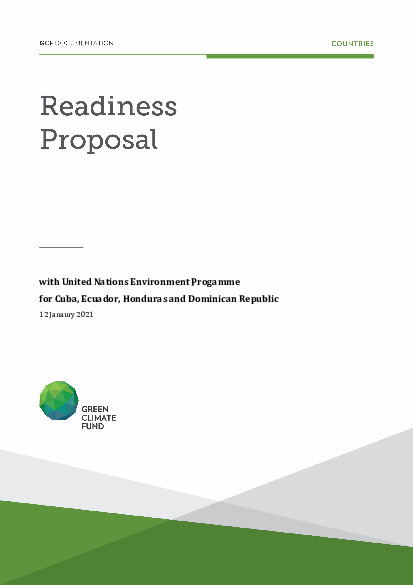Increasing resilience through Nature based Solutions in Latin American cities (Nature4Cities Latam)

Increasing resilience through Nature based Solutions in Latin American cities (Nature4Cities Latam)
Latin America and the Caribbean (LAC) is the second most urbanized region in the world, with more than 8 out of 10 inhabitants living in urban centres. Climate change makes regional cities more vulnerable: according to the Climate Change Vulnerability Index, 48% of the capital cities in LAC show “extreme risk” to the effects of climate change. This is of considerable concern due to the “key role of capitals in national governance and as drivers of economic development” 1. Most urban areas are also highly vulnerable to natural disasters (e.g. extreme events, coasts, hillsides, flood prone areas), that affect the quality of life and impact economic and social development. These risks represent major threats as the adverse effects of climate change are expected to further aggravate these challenges.
There is general recognition and growing awareness that Nature based Solutions (NbS) are a cost-effective and promising adaptation approach in the urban context, increasing climate change resilience, ensuring the delivery of sustainable infrastructure services and contributing to flexible planning in line with transformations and changes. The use of ecosystems for urban climate change adaptation and disaster risk reduction is a rapidly growing research and action area, and one with immense potential and significant challenges. According to the baseline of the Sustainable Development Goals (SDG) cities and metropolitan areas are centers of economic growth, contributing to approximately 60% of global GDP. However, they also account for about 70% of global carbon emissions and more than 60% of resource use. NbS also stand as an opportunity for cities to reduce their emissions and achieve a more efficient use of natural resources.
The definition and implementation of NbS in urban areas faces several barriers including: (i) the limited knowledge base for NbS; (ii) the inadequate governance structures for NbS; (iii) the balancing of the multiple goals and co-benefits NbS can deliver; (iv) effective citizen involvement; (v) insufficient social inclusion and social acceptance; (vi) lack of political and financial support; (vii) the challenges for monitoring NbS; and, (viii) the difficulties in upscaling NbS.
The project will support 4 LAC countries through examples in 6 selected secondary cities to identify and address the main barriers for nature-based adaptation and mitigation solutions by providing the necessary assessments, capacities and alternatives to financing schemes to accelerate adoption of these strategies. This will be done with a twofold approach: at a national and regional scale. Nationally, understanding that despite NbS are at an early stage in all participant countries, barriers and corresponding solutions may vary depending on each city ́s context and priorities. Regionally, by developing replicable methodologies and tools and potentiating multi-country collaboration to replicate and upscale lessons learned from these 6 cities and to contribute to already existing regional and global platforms that currently provide limited information and examples of NbS in urban areas.